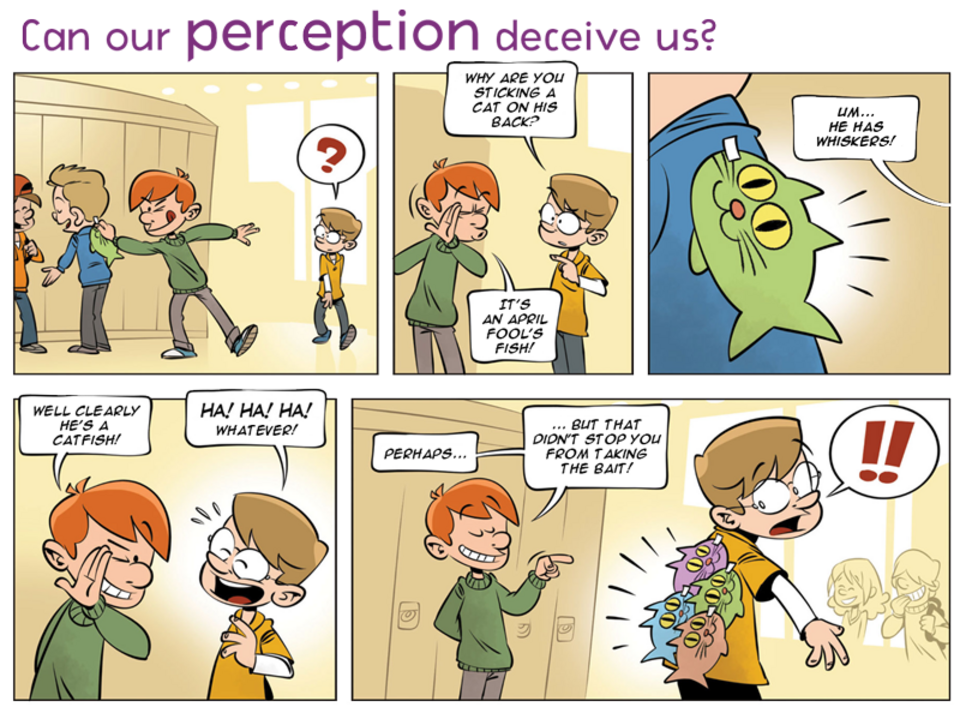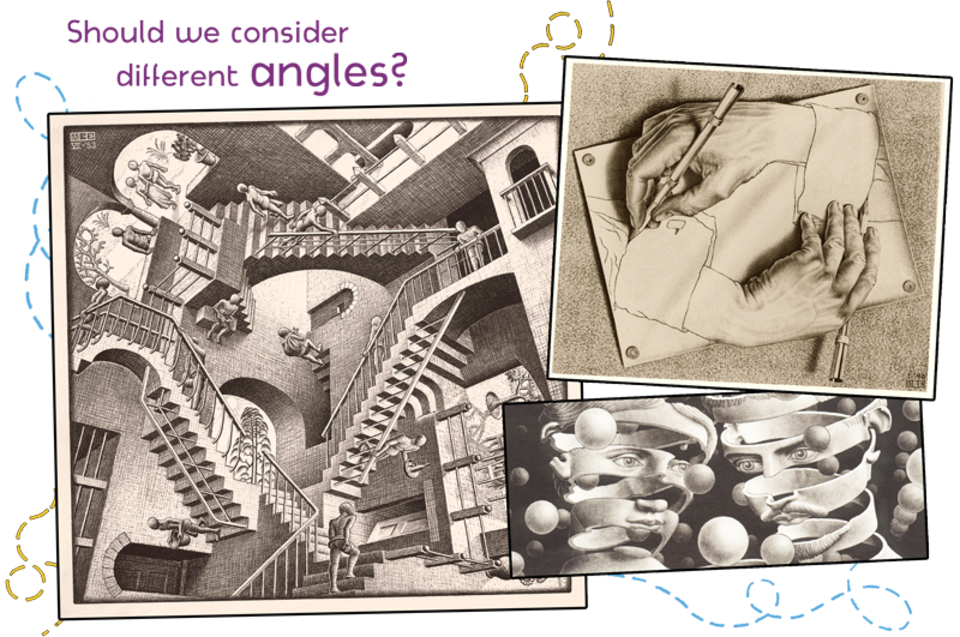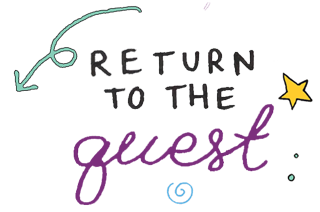
Alternative angles
| Objective: To wake up your creative and thinking energy by observing your environment from different angles! |
Duration: 1 to 15 minutes
Material:
- Your body and mind
- Space to move
Instructions:
In the movie "Dead Poets Society," an English teacher named Mr. Keating encourages his students to reject all forms of conformity—accepting to do what you are told without questioning it or deviating from the norm. During class, the teacher suddenly stands on his desk and invites his students to do the same. Why does he do this? "To remind myself that we must constantly look at things in a different way," he says. Why don't you give it a try as well?
...
- Look at your surroundings. First, look around you. How well do you know the place you're in? Have you adopted certain habits in this place? For example, do you always take the same route from one side of the room to the other, or do you always sit in the same place? Mr. Keating would say that when you think you know something well, you have to look at it from a different angle. Do you agree with this idea? Why or why not?
- Look at it from different angles. Now try to rediscover your environment by looking at it from different angles. You can stand on a table or lie down on the floor. You can sit in a dusty corner or take a shoulder stand... to turn everything upside down! What do you see? How are things different from this point of view? Are you noticing things you've never seen before?
- Think about your experience. Finally, what do you think: should we "remind [ourselves] that we must constantly look at things in a different way?" Why not just look at a situation the same way over and over again? Should we try to consider all possible perspectives? Maybe some points of view are more important than others... But then again, we should ask ourselves how to evaluate them!
...
Bonus: In cinema, different shots are used to create the atmosphere of a scene. The angle of the shot can help us understand the situation presented, highlight the importance of a character, or influence our feelings. High-angle shots, for example, consist of filming a character from above, giving the impression that the character is overwhelmed by their surroundings, that they are fragile or weaker than others. Shooting from a low angle, on the other hand, consists of placing the camera very low and pointing it towards the character, making them appear larger. In this way, low-angle shots can either elicit respect toward a benevolent character, by emphasizing their importance, or induce terror of a malevolent character, who will appear more threatening! By using a close-up shot, you can focus on one thing, cropping out everything around it. Conversely, a long shot allows you to have an overall view of something. Now observe your environment drawing inspiration from these techniques. You can make a rectangle with your fingers and observe the world through this frame to imagine that you have a camera in your hands. Can you frame a corner of your room to make it look tidy? Can you film your parents from a high angle to show how vulnerable they are? Can you capture the refrigerator from a low angle to turn it into a terrifying beast? After playing with these shots, ask yourself these questions: what happens when you look at things differently? Can your point of view change your experience of the world? Is it important to look outside the frame? Why or why not? |
| Bonus plus: If we don't know something... does it exist? This question may sound a bit silly! But suppose you've never seen a cat and have no idea what it is, do you think you would recognize the one in the comic below? Or would you only see a fish? Let's now imagine that you were taught what a cat is. Do you think that would change your perception of the comic? Would you now see something you had never seen before? Maybe learning new information makes new things pop up to you... Are we blind to what we don't know? Can learning change the way we see the world? Why or why not? |

This comic strip is reproduced with permission from the philosophy columns of our community partner Les Débrouillards magazine. It was produced in collaboration with our team at the Institute of Philosophy, Citizenship and Youth.

| Tricks for tots: How about trying to imagine the perspectives of different animals? First, imagine that you're a tiny little mouse. Walk around the room on all fours and try to look at things from a mouse’s point of view. Then imagine that you are a monkey. Climb up on a chair or table to look at the world from above! Finally, ask yourself these questions: can these animals see things you've never seen before? Can something you think you know well seem completely different to someone else? Do you have to consider different points of view to really know something? Why or why not? |
Tips for teens: You've probably heard of Lewis Carroll's novel Alice’s Adventures in Wonderland, which has been adapted into many movies. A popular interpretation of this story is that it’s about the victory of childhood over the conformity of the adult world, in a playful revolt against the rules of logic! The author's goal was to reveal the many ambiguities and absurdities of social rules and of the very organization of the world. This is why the story is full of contradictions, such as having to walk in the opposite direction to get somewhere, or seemingly absurd elements, such as portraying time as a person you can talk to. The result is often a very confused reader... But can confusion play a positive role in our lives? Should we try to clarify everything? Can we learn anything from nonsense and absurdity? Why or why not? |
Share your creative reflections by sending them via email.
Include photos of your projects and notes of your thoughts, as well as your first name and your age!


